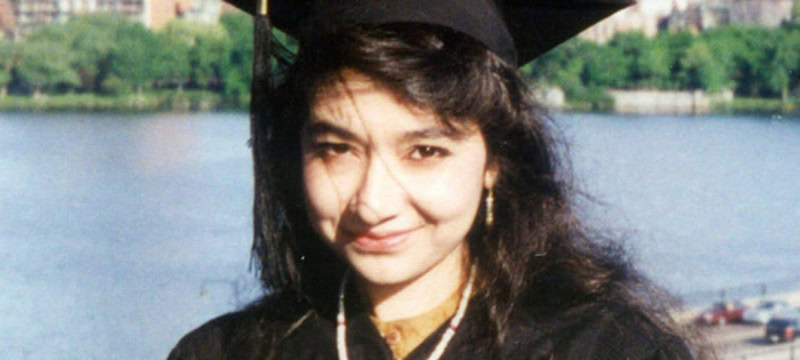Caretaker Prime Minister Anwaarul Haq Kakar has issued a directive to Pakistan’s Foreign Affairs Ministry, urging action on reports of alleged sexual assault against Dr. Aafia Siddiqui during her incarceration in the United States. This directive comes in the wake of statements by Foreign Office Spokesperson Mumtaz Zahra Baloch, emphasizing the seriousness of the claims surrounding Siddiqui’s circumstances.
Revelations from Siddiqui’s legal counsel shed light on distressing incidents, revealing that the Pakistani neuroscientist, imprisoned in the US for almost two decades on terrorism charges, reportedly faced two instances of sexual assault during her time in detention. These troubling disclosures surfaced shortly after a reunion between Siddiqui and her sister.
Clive Stafford Smith, Aafia’s attorney, conveyed to a Pakistani media outlet that Islamabad had been made aware of these distressing occurrences. He detailed his client’s harrowing experiences during detention, including the reported incidents of sexual assault. Smith expressed frustration over the lack of progress in addressing the registered complaints concerning these assaults. He recounted the initial harassment incident during coercive interrogation at Afghanistan’s Bagram detention facility, highlighting the ongoing physical and mental torture faced by Siddiqui.
Recently, after a lapse of two decades, Aafia Siddiqui had an emotionally charged reunion with her sister Fowzia at a prison hospital in Fort Worth, Texas. This heartfelt meeting, lasting over 40 minutes, involved Senator Talha Mahmood and Aafia Siddiqui’s legal representative.
Dr. Aafia Siddiqui, born on March 2, 1972, in Karachi, belongs to a Sunni Muslim family with strong ties to Islam and education. Having pursued her education in the United States, she obtained a PhD in neuroscience from Brandeis University in 2001.
Following her return to Pakistan post-9/11, Siddiqui’s alleged involvement sparked speculations and reports suggesting connections to Al Qaeda figures. Amidst these controversies, details about her marriages, children, and a mysterious five-year disappearance circulated. Siddiqui’s detention, particularly at Bagram detention center, raised global concerns about her well-being and rights.
The subsequent accusations, trials, and her eventual conviction for attempted murder triggered public outrage in Pakistan, leading to debates, rallies, and diplomatic efforts calling for her release. The governments of Nawaz Sharif and, more recently, PM Shehbaz Sharif’s directives reflect sustained endeavors to engage with US authorities in seeking Siddiqui’s release.
The emotional reunion between Dr. Fowzia and her sister, coupled with Siddiqui’s deteriorating health in captivity, has intensified calls for justice and raised apprehensions about her welfare, resonating both nationally and internationally.
The enigmatic and controversial narrative surrounding Dr. Aafia Siddiqui not only underscores broader geopolitical concerns but also echoes human rights issues, keeping her story at the forefront of international attention.









